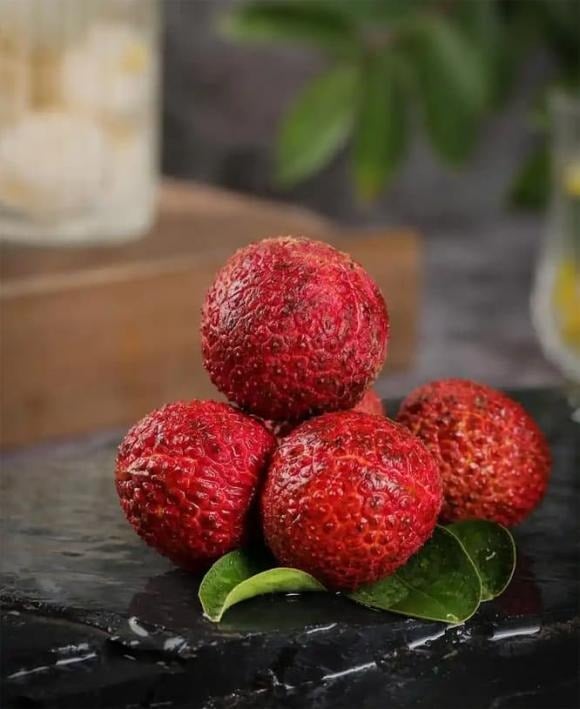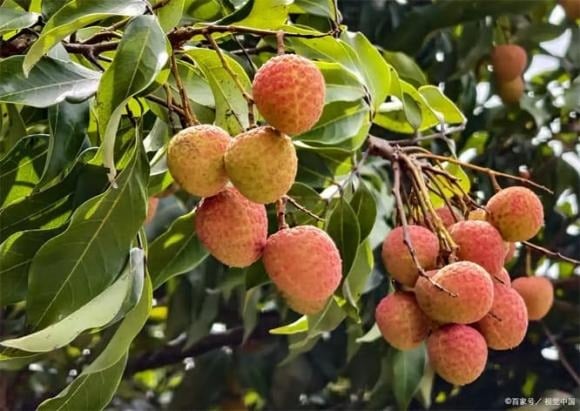Fruits like lychees are high in fructose, which can provide a quick energy boost, but they also come with potential health challenges. In particular, excessive lychee consumption by the four groups of individuals described below may lead to undesirable side effects.
According to traditional medicine, lychees have a warming nature, and their pulp contains volatile essential oils and organic acids. Overeating lychees can create an overly “hot and dry” environment in the body, akin to adding fuel to a fire. This effect is especially pronounced in individuals with a naturally warm constitution. For example, a story illustrates this point about a young neighbor who loved lychees; they ate only half a bowl but developed blisters in the corners of their mouth the very next day and had to miss preschool.
Group One: Individuals with Unstable Blood Sugar Levels
The fructose in lychees must be converted by the liver into glucose to be usable. Binge-eating lychees in a short period will stimulate insulin secretion and cause blood sugar fluctuations. Moreover, consuming lychees on an empty stomach can lead to sudden hypoglycemia, resulting in dizziness and nausea in mild cases and even coma in severe instances.
For this group, implementing the “3-3-3 rule” is advisable: eat three lychees, three times a day, spaced three hours apart, along with three slices of cucumber or tomato. This approach not only satisfies cravings but also slows down sugar absorption. Alternatively, peel the lychees and mix the fruit with yogurt for a sweet and sour treat that helps stabilize blood sugar levels.

Group Two: Individuals with Sensitive Stomachs
Fructose in lychees requires a special transporter for absorption in the small intestine. Some people lack this transporter from birth, so overeating lychees can lead to abdominal discomfort and pain.
Nutritionists recommend that individuals with sensitive stomachs drink a warm cup of millet porridge before consuming lychees to mitigate the impact. Additionally, opt for lychees with sharp spines and reddish-green skins—these are lychees that are just ripe and contain less fruit acid, making them gentler on the stomach.
Group Three: Allergy-Prone Individuals
The protein and tannin content in lychees can trigger allergies and, in severe cases, even lead to breathing difficulties. For first-time lychee eaters, it is advisable to try a single lychee and monitor for any reactions over the next two hours.
Should a rash or sore throat develop, seek medical attention immediately. As a dermatologist once shared, “Lychee allergy may be lurking in your genes, so never underestimate its potential.”

Group Four: Developing Children
Children’s livers are still maturing, and their ability to metabolize fructose is not yet fully developed. Therefore, consuming lychees on an empty stomach can be dangerous. Pediatricians advise that children under three years old should not eat more than three lychees per day. It is recommended to offer children a small piece of bread before giving them lychees. Additionally, parents can freeze lychees into small popsicles, providing a refreshing treat while controlling portion sizes.
5 Healthy Tips for Eating Lychees:
1. Timing is Key: Eat lychees about half an hour after a meal to savor their sweetness without irritating your stomach. A few lychees after a meal can also aid in weight loss and overall health.
2. Salt Water Soak: Soak lychees in a 1% salt water solution for about 15 minutes to disinfect and neutralize the fruit’s acidity. This method enhances their sweetness and prevents a dry throat.
3. Smart Pairings: Combine lychees with cooling fruits like mangosteen or watermelon to balance the body’s hot and cold properties.
4. Refrigerate for Freshness: Wrap lychees in paper towels, place them in a freshness-preserving bag, and store them in the refrigerator to keep them fresh for up to five days.
5. Don’t Discard the Peels: Before discarding the lychee peels, boil them in water to make a drink that helps cool you down from the inside. Alternatively, simmer the peels with honeysuckle for about 10 minutes, sweeten with rock sugar, and drink to soothe a sore throat.
3 Common Fruits With a “Toxic” Twist: A Word of Warning for the Unwary
“Fruits are nature’s nutritious treats, packed with essential vitamins and minerals that our bodies need. However, it’s important to remember that some fruits may contain toxins or place a burden on the body in certain circumstances. While they are largely beneficial, it’s crucial to be aware of any potential downsides and consume them in moderation.”





































